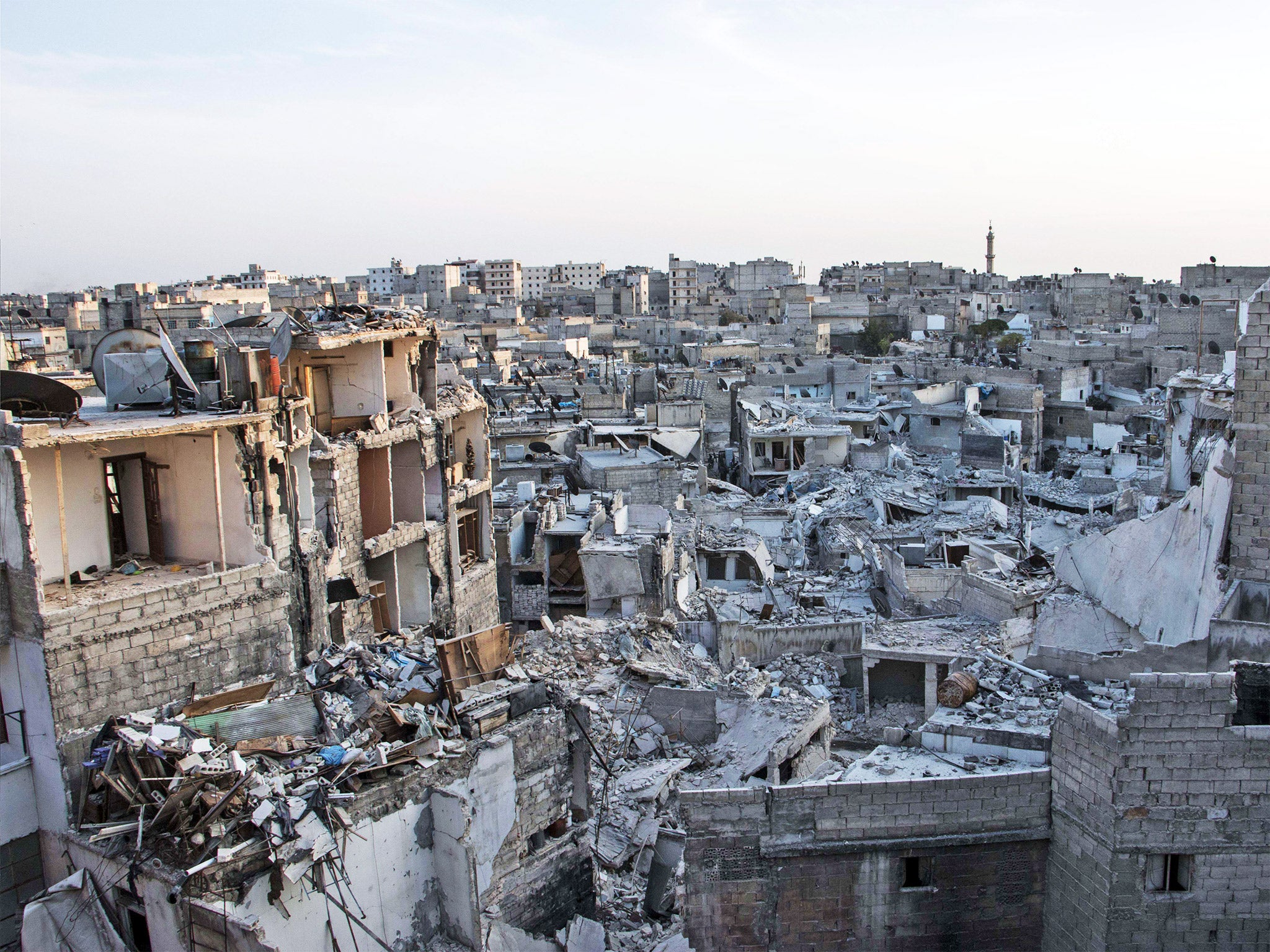In Aleppo all I think about is how my family will survive shelling, starvation and the sniper's bullet – but we are still the lucky ones
My greatest fear as a mother is seeing humanity completely disappear

Your support helps us to tell the story
From reproductive rights to climate change to Big Tech, The Independent is on the ground when the story is developing. Whether it's investigating the financials of Elon Musk's pro-Trump PAC or producing our latest documentary, 'The A Word', which shines a light on the American women fighting for reproductive rights, we know how important it is to parse out the facts from the messaging.
At such a critical moment in US history, we need reporters on the ground. Your donation allows us to keep sending journalists to speak to both sides of the story.
The Independent is trusted by Americans across the entire political spectrum. And unlike many other quality news outlets, we choose not to lock Americans out of our reporting and analysis with paywalls. We believe quality journalism should be available to everyone, paid for by those who can afford it.
Your support makes all the difference.Fear and worry are my constant companions, never leaving my side when I’m at home or when I go to work. This is because of the continuous deadly shelling in Aleppo, where I currently live. You never get use to that sound, its power and then the haunting silence afterwards, followed by the cries of the injured.
Two years ago I was sitting on our balcony with my daughter, singing songs, when suddenly we were rocked by a powerful explosion. We froze. I watched my daughter’s face grow paler and paler, and then we heard the screams of a woman. The shell had landed on the pushchair of her two-year-old daughter, and her husband’s leg had been blown off.
So when I go to work, I ask myself, “Will I reach my job safely today?”
I'm 37 years old. I married in 2010 in Aleppo, and have three children, two daughters and a baby son. In 2012 my husband lost his job – the factory where he was working was destroyed in the fighting. So now I am the breadwinner for my family, employed as an aid worker, with one of CAFOD’s partners in Syria.
Every day people leave Aleppo. My relatives have left for many corners of the world: America, Sweden, Germany and Australia. My husband’s family have gone to Lebanon and America. But often the elderly do not want to leave.
We have around 20 elderly people, aged from 75 to 90, living alone in our neighbourhood. We all try to keep an eye on them. They are determined to carry on, to stay with their memories in their country, the only one they have known. But how can I not feel angry when I see an elderly person struggling to carry a gallon of water?
We also fear the sniper’s bullet. At my daughter’s nursery a five-year-old boy was playing in the garden, just a few feet from her, when suddenly he fell down. A stray bullet had hit him in the head. After his death his family could not stay in Aleppo: they went to another city in Syria. One of the nursery nurses was so devastated that she couldn’t continue working there.
My daughter kept that horrific experience inside herself for many days. One day my husband asked how her day was at nursery, and who she had played with. She answered in four words: “A boy fell, blood.” How can I not feel angry at what she has seen? But Aleppo is such a painful place that many could tell equally horrific stories.
I don't have time to think about the future. All I think about it is how to get water, light our lamps, get gas bottles for cooking, wash our clothes, find nappies and milk for our babies. Everything is expensive.
The winter is harsh. I clasp the hands of my children and rub them between my adult hands to keep them warm. But we are lucky – we have a roof over our heads. There are many in Aleppo without shelter.
Like every mother anywhere in the world, I want to protect our children, I want to feed them, I want to take care of them when they are ill, and I want to tell them that a beautiful and exciting future awaits them.
Our greatest fear is seeing humanity disappear. Without respect, without love for each other, we will not bring an end to this conflict.
Peace, peace, peace. We need peace to chase away our fear and worry.
Mariana works for a CAFOD partner in Syria, providing life-saving food and emergency supplies to people who continue to be torn apart by the four year conflict.
Join our commenting forum
Join thought-provoking conversations, follow other Independent readers and see their replies
Comments